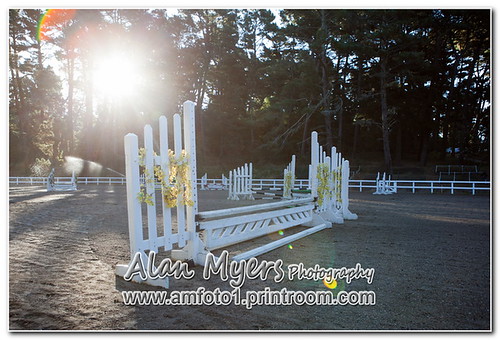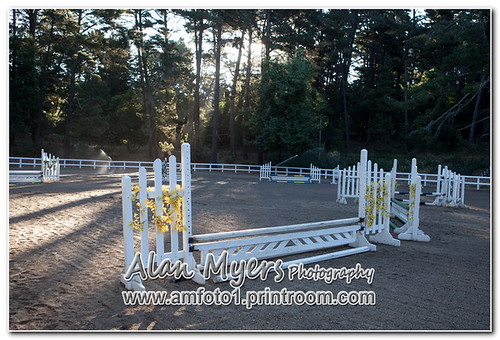Check out Travel Photography - Tips and More section of our forum.
Dirty lens?
Aug 29, 2015 11:22:17 #
amfoto1
Loc: San Jose, Calif. USA
1. Unscrew filter from lens.
2. Put filter in storage case, then put that in your pocket.
3. Re-shoot without any filter.
These are classic examples of situations where a filter is likely to greatly amplify flare. In both situations, you might see some flare even with a bare lens. A high quality, multi-coated filter will exhibit less flare than a cheap, uncoated one. But in the most extreme lighting situations, even a very good filter will tend increase it and a bare lens is likely to do better.
Flare is one of the primary reasons I do not keep silly "protection" filters on my lenses all the time (silly because how much protection can a thin piece of glass be expected to provide?). Yes, I have them and install them in conditions when actually needed (such as a sand storm or similar). But the rest of the time - most of the time - my lenses go naked unless I'm using another type of filter that serves an actual photographic purpose, such as a circular polarizer (far, far more useful than a "protection" filter... a CPL actually can enhance some images in important ways).
Some lenses are better than others resisting flare. But almost any lens, even without a filter, is likely to show a bit of flare in extreme lighting conditions (especially the interior shot example). Just be sure the front and rear elements of the lens are as clean as possible. And sometimes you can move slightly to prevent or greatly reduce flare... For example, these two shots made with Canon 24-70/2.8L, which is pretty flare resistant:


When shooting the above, I could easily see the flare occurring in the camera's viewfinder. Moving just slightly greatly reduced the flare. This isn't always possible, but sometimes works.
Use a good fitting lens hood all the time. It can help reduce some flare and provides far better physical protection than a filter.
Dirty lenses and/or filters also will amplify flare.
A dirty sensor also might cause flare effects.
But flare is hard to avoid entirely in certain, tricky situations. All you can do is minimize it as much as possible. And it might be possible to edit minor flare effects out.... This is a test image, before and after post-processing, where I was shooting directly into the sun with a polarizing filter (B+W MRC) on the lens, to see how badly the lens and filter would flare... I was actually pleasantly surprised:


Both your shots also could have been improved quite a bit by taking two shots instead of one... One would be exposed for the highlights and the other exposed for the shaded areas... Then combine the "correct" areas from each into a single image in post processing. The interior image might have required more than two shots, in fact.
This is essentially an "HDR" or "High Dynamic Range" treatment of the images, done because the scene is exceeding the camera sensor's dynamic range. The interior image, in particular, has too-dark (underexposed) shadows and too-bright (overexposed) light areas. Multi-shot technique is one way of handling this (also can sometimes be done with multi-processing of RAW files in post processing).
The outdoor shot also could have used a graduated neutral density filter (rectangular type) to similarly control contrast. However, I've gotten away from using those since better results can be gotten using multi-shot and post-processing techniques like described above.
2. Put filter in storage case, then put that in your pocket.
3. Re-shoot without any filter.
These are classic examples of situations where a filter is likely to greatly amplify flare. In both situations, you might see some flare even with a bare lens. A high quality, multi-coated filter will exhibit less flare than a cheap, uncoated one. But in the most extreme lighting situations, even a very good filter will tend increase it and a bare lens is likely to do better.
Flare is one of the primary reasons I do not keep silly "protection" filters on my lenses all the time (silly because how much protection can a thin piece of glass be expected to provide?). Yes, I have them and install them in conditions when actually needed (such as a sand storm or similar). But the rest of the time - most of the time - my lenses go naked unless I'm using another type of filter that serves an actual photographic purpose, such as a circular polarizer (far, far more useful than a "protection" filter... a CPL actually can enhance some images in important ways).
Some lenses are better than others resisting flare. But almost any lens, even without a filter, is likely to show a bit of flare in extreme lighting conditions (especially the interior shot example). Just be sure the front and rear elements of the lens are as clean as possible. And sometimes you can move slightly to prevent or greatly reduce flare... For example, these two shots made with Canon 24-70/2.8L, which is pretty flare resistant:


When shooting the above, I could easily see the flare occurring in the camera's viewfinder. Moving just slightly greatly reduced the flare. This isn't always possible, but sometimes works.
Use a good fitting lens hood all the time. It can help reduce some flare and provides far better physical protection than a filter.
Dirty lenses and/or filters also will amplify flare.
A dirty sensor also might cause flare effects.
But flare is hard to avoid entirely in certain, tricky situations. All you can do is minimize it as much as possible. And it might be possible to edit minor flare effects out.... This is a test image, before and after post-processing, where I was shooting directly into the sun with a polarizing filter (B+W MRC) on the lens, to see how badly the lens and filter would flare... I was actually pleasantly surprised:


Both your shots also could have been improved quite a bit by taking two shots instead of one... One would be exposed for the highlights and the other exposed for the shaded areas... Then combine the "correct" areas from each into a single image in post processing. The interior image might have required more than two shots, in fact.
This is essentially an "HDR" or "High Dynamic Range" treatment of the images, done because the scene is exceeding the camera sensor's dynamic range. The interior image, in particular, has too-dark (underexposed) shadows and too-bright (overexposed) light areas. Multi-shot technique is one way of handling this (also can sometimes be done with multi-processing of RAW files in post processing).
The outdoor shot also could have used a graduated neutral density filter (rectangular type) to similarly control contrast. However, I've gotten away from using those since better results can be gotten using multi-shot and post-processing techniques like described above.
Aug 29, 2015 12:07:26 #
WOW, seems pretty simple to me, take a minute to unscrew the filter and clean the lens and filter, reshoot, a few shots. if u still have a problem then maybe u have a valid question!!!
MiroFoto wrote:
I tried to enclose 2 pictures, where the light spill over and ruins the shot. Do you think it is a dirty UV filter?
Thanks Miro
Thanks Miro
Aug 29, 2015 12:17:05 #
Situations like these, in my opinion, are perfect for HDR where one takes multiple exposures and combines them to get the necessary dynamic range to result in a pleasant capture of a difficult to expose scene. While I am far from an expert in this subject, I do enjoy playing with what's available to accomplish it. The are lots of good books and software available, and you camera may even have some HDR capabilities built in. Also, all these types of shots are great examples of why you should be using an appropriate lens hood! Have fun with this.
Aug 29, 2015 12:28:08 #
Aug 29, 2015 13:42:38 #
Aug 29, 2015 13:50:13 #
OddJobber wrote:
(1) Unscrew filter from lens.
(2) Hold it up to the light.
(3) Is it dirty? We can't tell from here.
(4) :roll:
(2) Hold it up to the light.
(3) Is it dirty? We can't tell from here.
(4) :roll:
:lol: :P :-D :thumbup: :thumbup: :thumbup:
Aug 29, 2015 16:42:15 #
MiroFoto wrote:
I tried to enclose 2 pictures, where the light spill over and ruins the shot. Do you think it is a dirty UV filter?
Thanks Miro
Thanks Miro
It doesn't matter whether the UV filter is dirty or not. They've rarely any benefit with digital sensors, they always degrade the image to some extent, and in both these and other high contrast situations the degradation will be significant.
Check out Bridge Camera Show Case section of our forum.
Aug 29, 2015 21:33:16 #
Aug 30, 2015 23:05:04 #
OddJobber wrote:
(1) Unscrew filter from lens.
(2) Hold it up to the light.
(3) Is it dirty? We can't tell from here.
(4) :roll:
(2) Hold it up to the light.
(3) Is it dirty? We can't tell from here.
(4) :roll:
:thumbup:
If you want to reply, then register here. Registration is free and your account is created instantly, so you can post right away.
Check out Digital Artistry section of our forum.





